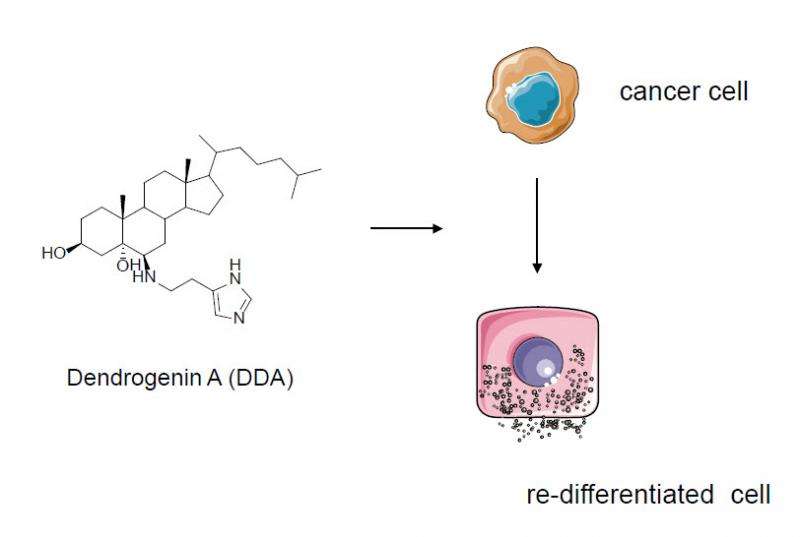From tamoxifen to dendrogenin A: Discovery of a mammalian tumor suppressor metabolite

Researchers from the Cancer Research Center of Toulouse have conducted the first comprehensive review on dendrogenin A (DDA). DDA is a steroidal alkaloid arising from cholesterol and histamine cross-metabolization that they recently discovered. Importantly, they found that DDA is a tumor suppressor metabolite. Thus 100 years after the discovery of all-trans-retinoic acid, DDA appears as a rare example human metabolite promised to extensive basic research studies and clinical developments.
In an invited, peer-reviewed article on "Novel anticancer drugs from nature", published in a recent issue of Current Medicinal Chemistry, Sandrine Silvente-Poirot, Florence Dalenc and Marc Poirot, researchers at the "Centre de Recherche en Cancerologie de Toulouse" and "the Institut Universitaire du Cancer de Toulouse", gave the rational that led them to conceive, design and discover DDA, and described its pharmacological properties.
These researchers recently identified an enzyme involved in cholesterol metabolism as a target of the antitumor drug, Tamoxifen: the cholesterol-5,6-epoxide hydrolase. They postulated that a new metabolic pathway could exist from the metabolic transformation 5,6α-epoxycholesterol (5,6α-EC), a natural oxidation product of cholesterol. A conjugation product of 5,6α-EC with histamine was synthesized to give DDA. DDA showed a strong potency to induce cell differentiation activity at low dose suggesting its possible existence as an endogenous metabolite. This was next established by these researchers and they found that DDA levels were strongly decreased in tumors suggesting a deregulation in DDA metabolism in cancers.
Complementation of this DDA deficiency in tumors xenografted in mice induced a potent anticancer effect at low doses, suggesting a physiological function in maintaining cell integrity and differentiation. DDA is the first steroidal alkaloid found to date in mammals. Its discovery reveals the existence of a new metabolic pathway in mammals at the crossroads of cholesterol and histamine metabolism that leads to the production of a metabolic tumor suppressor.
More information: Florence Dalenc et al. Dendrogenin A: A Mammalian Metabolite of Cholesterol with Tumor Suppressor and Neurostimulating Properties, Current Medicinal Chemistry (2015). DOI: 10.2174/0929867322666150716114912















